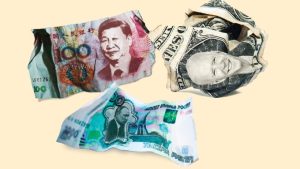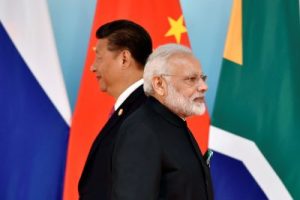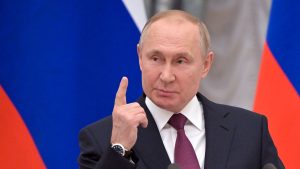Prof. Yves Tiberghien comments on the implications of Huawei, ZTE ban in Canada
The recent Huawei and ZTE bans could further strain the Chinese-Canadian relationship, both politically and economically. “There have been signals that this decision has been coming for years,” Prof. Tiberghien said. “This will not be a shock to the system. If anything it will be a ripple in the bigger picture.”
Prof. Jenny Peterson awarded funding for Intergenerational Connections & Futures for Afghan Scholars Program
Part of the $1.096 million dollar grant from the International Development Research Centre will go towards connecting Afghan students with Afghan scholars and activists to discuss possible ‘pathways’ for a socio-politically forward looking Afghanistan through Dr. Jenny Peterson’s “Intergenerational Connections and Futures” project.
Scope Conditions Episode 2.8: Social Media and Authoritarian Regimes with Prof. Alexandra Siegel
UBC Professors Alan Jacobs and Yang-Yang Zhou discuss the nuanced relationship between social media and authoritarian regimes with University of Colorado Boulder Assistant Professor Alexandra Siegel in the latest episode of Scope Conditions.
Prof. Yves Tiberghien quoted on the eroding US-led liberal international order in Outlook Business
“Twenty-one per cent of global GDP has changed hands from developed to emerging economies since 2000 (14% of which has gone to China). It means that the West cannot dominate all global institutions and rules any longer. But, the US itself under Donald Trump came to question its leadership role in that order and decided to give up on all institutions and global rules it created,” says Prof. Tiberghien.
Dr. Lisa Sundstrom’s new book explains how non-governmental organizations mediate issues in global governance
Prof. Lisa Sundstrom and Laura Henry’s new book, Bringing Global Governance Home: NGO Mediation in the BRICS States combines insights from international relations and comparative politics to explain the dilemmas and strategies of NGO mediation in case studies on HIV/AIDS, climate change, sustainable forestry, and corporate social responsibility.
The paradox of China–India relations
Prof. Yves Tiberghien and undergraduate student Meghna Srivastava write on relations between China and India, which have been divided by both security tensions and opposite alliances but took a major step forward in March.
Disrupted Order: G20 Global Governance at a Time of Geopolitical Crisis
Prof. Yves Tiberghien argue that leaders of major countries have increasingly engaged in cognitive dissonance: there is a fast-growing gap between their continued official support for G20 procedures and their
refusal to cooperate with each other.
Prof Yves Tiberghien comments on how the invasion of Ukraine puts China is in a tough spot as a Russian ally and global exporter
“They believe that China is rising, but rising in a world of economic interdependence. China’s economic strength is completely connected to globalization,” said Professor Yves Tiberghien. According to him, “many mainstream voices and middle-class Chinese are shocked by the reality of war in Ukraine and are writing that war is a crime.”
Putin’s hard line on gender and sexuality leaves him room to tack to the middle again: Prof Lisa Sundstrom writes
Professor Lisa Sundstrom writes on how Putin’s rhetoric mixes signals to message to both elites and mass audiences. Mixed messages help Putin manage his constituencies’ conflicting expectations and maintain support.
Prof. Yves Tiberghien: Japan slams the borders shut on Omicron
“As COVID-19’s Omicron variant surges around the world, advanced democracies are generally responding vigorously but with lower levels of restrictions on social life and travel than in 2020 and 2021. Japan has chosen a different course.” Prof Yves Tiberghien and Saya Soma (University of Waterloo) write in East Asia Forum








